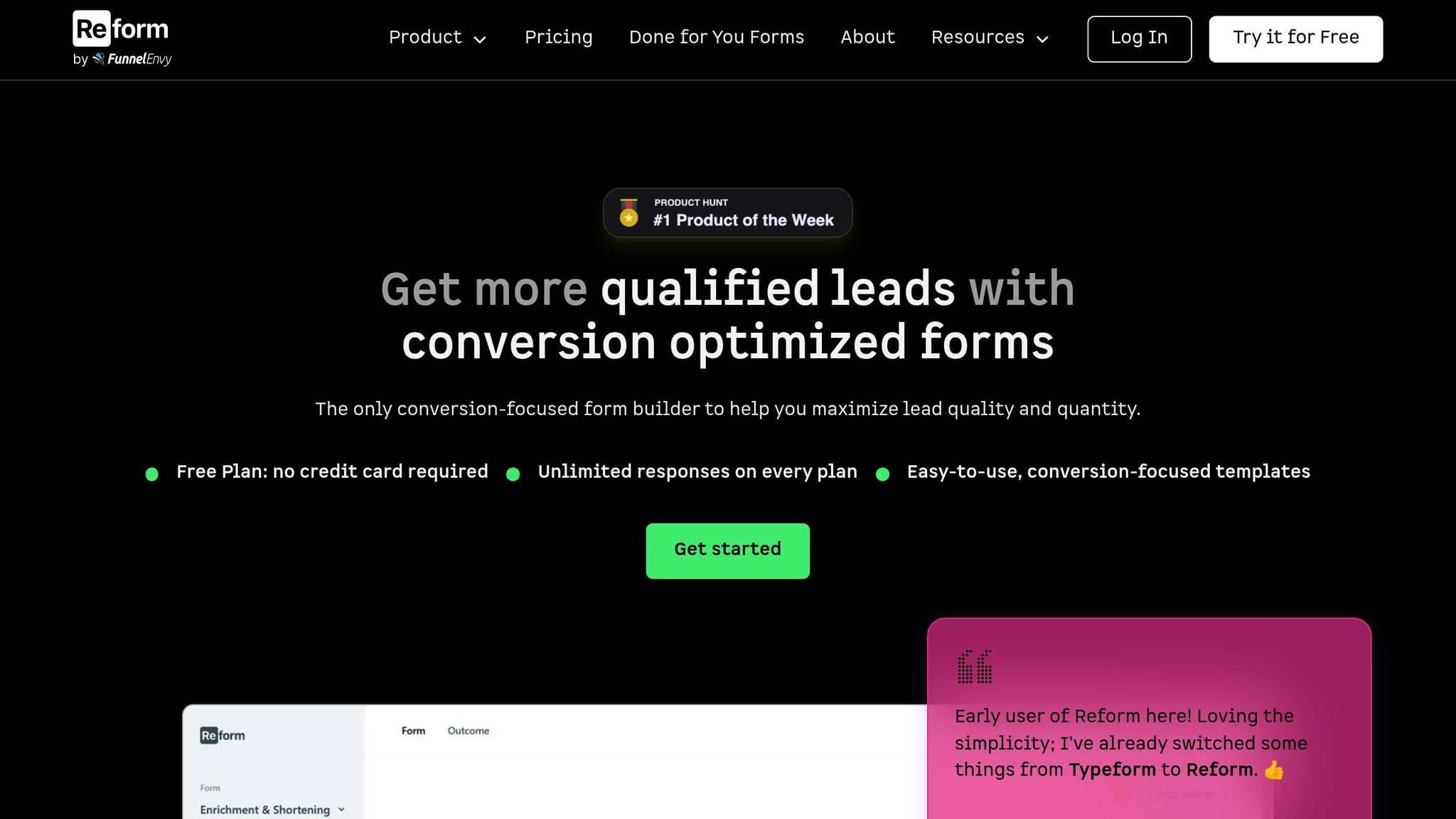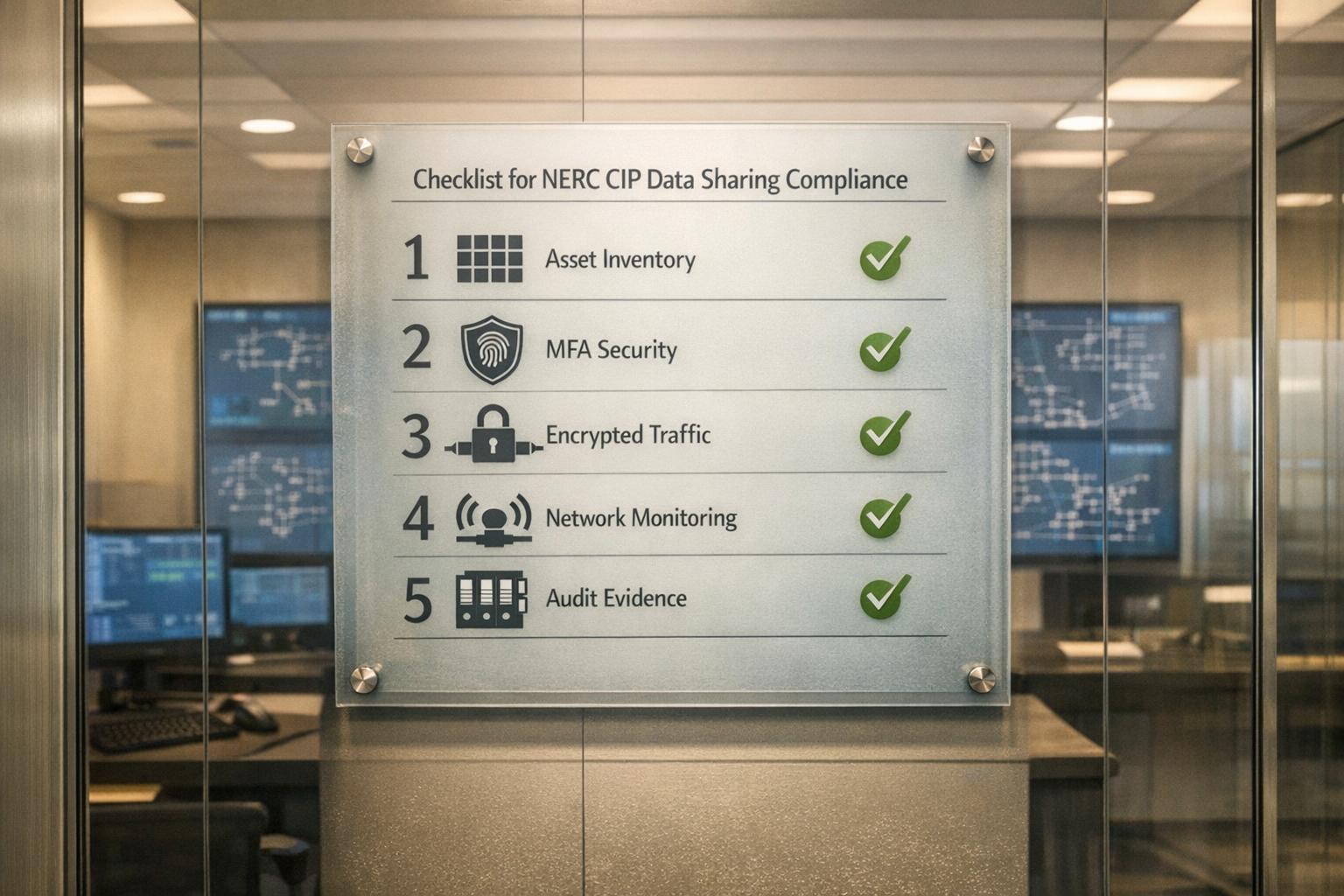SCCs and Third-Party Processors: Key Rules

When transferring personal data outside the European Economic Area (EEA), businesses must comply with GDPR regulations. Standard Contractual Clauses (SCCs) are the primary legal tool for ensuring secure and lawful data transfers. They set clear rules for protecting personal data, particularly when working with third-party processors. Here’s what you need to know:
- SCCs are pre-approved legal clauses that outline data protection obligations during international transfers.
- Processors must follow strict rules, including data minimization, strong security measures, and prompt reporting of issues.
- Sub-processors require explicit authorization, and contracts must align with SCC obligations.
- Data subject rights (like access, rectification, and erasure) must be supported, with clear communication and compliance processes.
For businesses, tools like Reform simplify SCC compliance with features like email validation, spam prevention, and secure integrations. While SCCs ensure legal stability, they can be resource-intensive. Reform offers a cost-effective solution, particularly for small and medium-sized businesses, by automating many compliance tasks while maintaining GDPR standards.
Important Clauses Every GDPR Contract Must Include | Privacy & Data Protection | CT Academy
1. Standard Contractual Clauses (SCCs)
Standard Contractual Clauses (SCCs) are a key mechanism under GDPR for legally transferring personal data outside the European Economic Area (EEA). These pre-approved clauses define clear responsibilities and obligations for third-party processors, ensuring compliance with GDPR requirements.
"Standard Contractual Clauses are standardized legal provisions that provide a framework for transferring personal data outside of a jurisdiction. The European Commission describes them as 'standardized and pre-approved model data protection clauses that allow controllers and processors to comply with their obligations.'" – Obehi Okonofua, Privacy Knowledge Lead, Controls Library, TrustArc
Compliance with SCC Obligations
Processors operating under SCCs must strictly adhere to documented instructions, minimize data transfers, and promptly notify exporters of any non-compliance or inaccuracies.
To safeguard data, processors are required to implement robust technical and organizational measures. Access to personal data should be restricted to personnel who need it solely for tasks related to the contract, such as implementation, management, or monitoring. In the event of a data breach, processors must act quickly to address and mitigate the issue. These measures ensure data remains protected throughout all stages of processing.
When it comes to government access requests, processors face additional scrutiny. They must carefully assess the legal validity of such requests, challenge them when appropriate, and disclose only the absolute minimum amount of data necessary.
These responsibilities reinforce the GDPR's overarching framework for secure and lawful data transfers.
Sub-processor Management
SCCs also extend their compliance requirements to sub-processors. Before engaging any sub-processor, controllers must provide explicit authorization. Contracts with sub-processors must align with SCC obligations, ensuring that data subjects' rights are upheld. The primary data importer remains accountable for any non-compliance and must notify the exporter if issues arise.
"The engagement of processors should not lower the level of protection afforded to data subjects compared to a scenario where the controller processes the data directly." – EDPB Opinion 22/2024
An essential safeguard within SCCs is the inclusion of a third-party beneficiary clause. This clause allows data exporters to terminate agreements and demand the erasure or return of personal data if the primary data importer becomes insolvent, ceases operations, or is otherwise unable to fulfill its obligations.
Data Subject Rights Facilitation
Processors play a critical role in supporting data subject rights, such as access, rectification, and erasure. They must also provide clear contact details for handling complaints.
Additionally, data subjects have the right to request and receive copies of the SCCs at no cost. It is the responsibility of the data exporter to make these clauses, along with any completed appendices, readily available upon request.
Integration Capabilities
Technology platforms like Reform enhance compliance by embedding privacy-focused features. These include tools for email validation, spam prevention, and secure data handling, which align with the technical safeguards required by SCCs.
Reform’s integration with CRM and marketing tools introduces additional considerations for sub-processor management. Any point where personal data flows to third-party systems must meet SCC authorization standards and maintain equivalent levels of protection. Organizations using platforms like Reform for international data collection should ensure their Transfer Impact Assessments account for all integrated services and data flows. This approach balances the platform’s seamless functionality with the stringent demands of SCC compliance.
2. Reform (form builder platform)

Reform is a no-code platform designed to create polished, branded forms while prioritizing data protection and compliance. As a third-party processor under the Standard Contractual Clauses (SCCs) adopted by the European Commission on June 4, 2021, Reform includes several safeguards to ensure personal data is handled securely throughout its processing stages.
Compliance with SCC Obligations
Reform operates within the framework of SCCs by incorporating strong protections. Features like email validation and spam prevention help secure data during transfers within the European Economic Area (EEA). Additionally, its real-time analytics enable organizations to conduct transfer impact assessments, documenting key details such as transfer circumstances, relevant laws, and implemented safeguards.
The platform also supports conditional routing and multi-step forms, ensuring only essential data is collected. This approach aligns with SCC requirements, which emphasize adherence to data controllers' instructions and the principle of data minimization.
Supporting Data Subject Rights
Reform helps organizations comply with GDPR requirements regarding data subject rights. Features like draft-saving, tracking incomplete responses, and sharing completed form copies make it easier to manage requests for data access, correction, or erasure, while also enhancing transparency. Conditional logic within the platform allows organizations to clearly present consent options and provide detailed information about data processing practices.
Custom thank-you pages and email notifications further enhance user experience by clearly communicating rights such as data erasure, portability, and the ability to object to profiling. These features integrate seamlessly with Reform's connections to marketing and CRM tools, ensuring organizations can maintain compliance while improving communication.
Integration Capabilities
Reform supports easy integration with a variety of marketing and CRM tools. Basic integrations include Notion, Google Sheets, Zapier, and ConvertKit, while Pro plan users gain access to advanced integrations with platforms like HubSpot. Each integration is designed with SCC compliance in mind, ensuring secure and lawful data transfers.
Advantages and Disadvantages
Let’s dive into the trade-offs between Standard Contractual Clauses (SCCs) and Reform, a third-party processor, to help U.S. organizations weigh their options. The table below highlights key differences:
| Aspect | Standard Contractual Clauses | Reform (Third-Party Processor) |
|---|---|---|
| Implementation Costs | High – Costs range from about $4,000 for micro businesses to $216,000 for large enterprises. | Moderate – Starts at $15/month for the Basic plan and $35/month for the Pro plan. |
| Compliance Complexity | Very High – Requires Transfer Impact Assessments for each contract and knowledge of third-country surveillance laws. | Low – Built-in compliance tools simplify many SCC-related tasks. |
| Scalability | Poor – Hundreds of contracts may be needed to cover transfers across affiliates. | Excellent – Unlimited responses and seamless integrations make scaling easier. |
| Vendor Cooperation | Challenging – Some vendors may refuse to agree to SCC terms or even sign. | Reliable – Pre-configured compliance frameworks reduce negotiation hurdles. |
| Time Investment | Extensive – Transfer Impact Assessments are time-intensive and costly. | Minimal – Automation and real-time analytics streamline processes. |
These comparisons highlight the benefits and limitations of both approaches.
SCCs offer strong legal stability, making them resistant to court challenges. However, navigating the EU's complex regulatory requirements can be daunting for U.S. businesses. For small and medium-sized enterprises (SMEs) and start-ups, these complexities can lead to data localization issues, particularly when proving that customer data isn’t subject to U.S. surveillance.
Reform, on the other hand, simplifies compliance with tools like built-in email validation, spam prevention, and conditional routing to enforce data minimization and security. It integrates seamlessly with platforms like HubSpot and Salesforce, enabling organizations to maintain compliance across multiple data transfer points without negotiating separate SCCs for every connection.
That said, Reform isn’t a magic fix for all SCC-related challenges. Even with its automation features, businesses still need to conduct Transfer Impact Assessments, document safeguards, and identify which data transfers require SCC compliance - especially when dealing with international marketing and CRM systems.
For practical use, U.S. organizations can combine Reform’s automated features with solid internal policies. Considering that 94% of organizations rely on contractual assurances to validate vendor data protection measures, Reform’s real-time analytics and draft-saving capabilities can make SCC documentation more manageable.
For SMEs, the financial advantage is clear: Reform offers a cost-effective option, with annual costs ranging from $180 to $420, compared to the $13,300–$26,000 investment typically required for SCC compliance infrastructure.
sbb-itb-5f36581
Conclusion
Standard Contractual Clauses (SCCs) play a key role in helping U.S. organizations comply with EU data protection laws when handling personal data across borders. While SCCs offer the legal safeguards required for international data transfers, managing them can often feel overwhelming and resource-heavy.
That’s where Reform steps in. By automating tasks like email validation, spam prevention, and conditional routing, Reform simplifies the compliance process. Its integrations with widely used marketing and CRM tools make managing and reporting data a smoother experience.
For small and medium-sized businesses, Reform’s budget-friendly pricing and intuitive platform present an appealing alternative to more complex compliance systems. Automation not only simplifies day-to-day operations but also frees up time and resources for focusing on strategic priorities - all while staying aligned with EU regulatory standards.
FAQs
What are the key advantages of using Standard Contractual Clauses (SCCs) for transferring data internationally under GDPR?
Using Standard Contractual Clauses (SCCs) for International Data Transfers
Standard Contractual Clauses (SCCs) serve as a reliable, legally recognized framework for transferring personal data internationally under GDPR. They help businesses stay compliant with data protection laws when moving data to countries outside the EU that don’t operate under GDPR regulations.
One of the key advantages of SCCs is that they clearly define the duties of both the data exporter and the data importer. This ensures personal data is safeguarded throughout the transfer and processing stages. By setting these standards, SCCs minimize legal risks and uphold robust data privacy measures, giving businesses and their customers greater confidence in the security of cross-border data exchanges.
How does Reform support small and medium-sized businesses in meeting SCC and GDPR compliance requirements?
How Reform Eases SCC and GDPR Compliance
Reform makes it easier for small and medium-sized businesses to handle SCC and GDPR compliance by providing a straightforward, GDPR-compliant form builder. It’s packed with features like collecting explicit consent, secure data handling, and tools designed to align with essential GDPR principles, such as minimizing data collection and ensuring secure processing.
When it comes to data security, Reform doesn’t cut corners. It undergoes regular audits based on rigorous standards like SOC 2 and ISO 27001. This means businesses can tackle compliance requirements with confidence, avoid unnecessary hassle, and focus on safeguarding user data - all while saving valuable time and resources.
What should businesses do to stay compliant when using sub-processors under SCCs?
To comply with Standard Contractual Clauses (SCCs) when working with sub-processors, businesses must first secure written authorization from the data controller. This can take the form of either specific approval for each sub-processor or general approval, provided it includes clearly defined conditions.
Sub-processors must adhere to the same data protection obligations as the primary processor. This includes implementing strong security measures and being transparent about their processing practices. Conducting regular audits and monitoring sub-processors is a proactive way to identify risks and ensure compliance remains intact.
These measures help businesses meet their obligations under SCCs while safeguarding data throughout the processing chain.
Related posts
Get new content delivered straight to your inbox

The Response
Updates on the Reform platform, insights on optimizing conversion rates, and tips to craft forms that convert.
Drive real results with form optimizations
Tested across hundreds of experiments, our strategies deliver a 215% lift in qualified leads for B2B and SaaS companies.


.webp)



